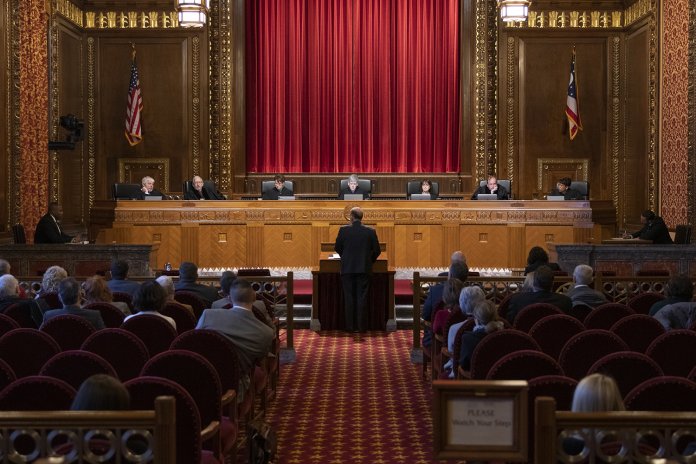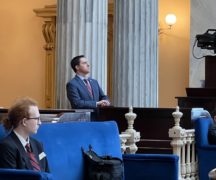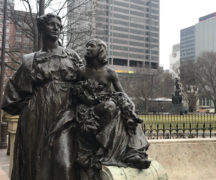Ohio Capital Journal
A political group asked the Ohio Supreme Court on Thursday to reverse the state Ballot Board’s decision to dissect its referendum into four separate parts.
The proposed referendum would have allowed for automatic voter registration, Election Day registration, and other provisions.
Ohioans for Secure and Fair Elections, an offshoot of the ACLU of Ohio, submitted their court filing Thursday afternoon. They also asked the court for expedited consideration given the resources required to come up with nearly 443,000 signatures by July 1 to place a single referendum on the ballot.
Four referendums would require about 1.8 million signatures.
At the same time, the campaign has also submitted the separate ballot proposals to the attorney general for review, in case the legal challenge fails.
“We are moving forward with a two-pronged approach as we continue to work to ensure all Ohio’s elections are secure and that every eligible voter can cast a ballot,” said OSFE campaign manager Toni Webb in a statement. “We have no choice but to challenge the Ohio Ballot Board’s unlawful decision to slice our ballot initiative into four separate petitions, and feel confident the law is on our side.”
In the legal filing, OSFE lawyers argued court precedent requires the Ballot Board to liberally determine whether the scope of a referendum is limited to a single object.
Specifically, they cited language from a 2010 court opinion stating the board has a duty to “liberally construe” petitions so long as the proposed amendment “bears some reasonable relationship to a single general object or purpose.”
Earlier this week, Republicans on the ballot board said the referendum was too broad and cleaved it into four parts: election administration, voter registration, access to voting for disabled people, and post-election audits.
As originally written, the referendum would have:
- Removed the requirement that Ohioans be registered at least 30 days before they vote
- Allowed Ohioans to register to vote on Election Day
- Provided for automatic voter registration through the BMV (unless one opts out)
- Allowed in-person voting on weekdays in the 28 days before election day and on the last two weekends before Election Day
- Guaranteed full and equal access for people with disabilities to register and vote
- Granted military personnel an absentee ballot 46 days before an election
- Required a “representative sample of statewide elections” to be audited to ensure accuracy and integrity





